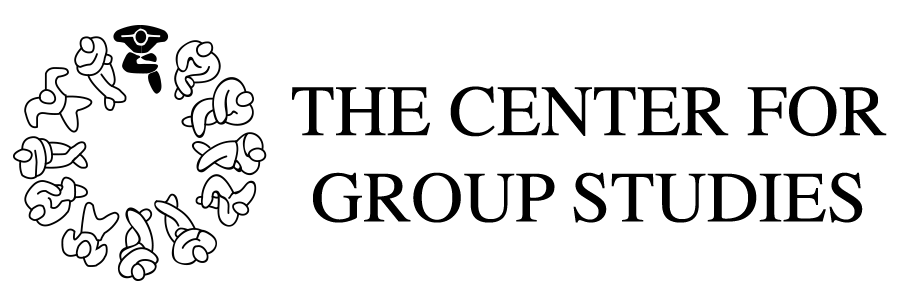Anti-Discrimination and Harassment Policy Statement
Objective
The Center for Group Studies is committed to a professional, educational and training environment in which all individuals (i.e., faculty, students, employees, board members, and visitors) are treated with respect and dignity. Each individual has the right to work and learn in an atmosphere that promotes equal opportunities and prohibits unlawful discriminatory practices, including harassment. Therefore, CGS has developed this policy to ensure that people can work and learn in an environment free from unlawful and/or unethical harassment, prejudice, discrimination and retaliation. CGS will make every reasonable effort to ensure that all concerned are familiar with these policies and are aware that any complaint in violation of such policies will be investigated and resolved appropriately.
The policies of CGS expressly prohibit disparate or biased treatment on the basis of race, color, sex, religion, national or ethnic origin, age, disability status, gender identity, education, past or present military service, sexual orientation, genetic information or any other protected classes under the law, with regard to terms, conditions, privileges and perquisites of employment, education and training.
These policies apply to all students, faculty, employees , board members, and visitors.
Equal employment opportunity
It is the policy of CGS to ensure equal employment opportunity and prohibits discrimination or harassment on the basis of race, color, sex, religion, national or ethnic origin, age, disability status, gender identity, education, past or present military service, sexual orientation, genetic information or any other protected classes under the law.
Sexual harassment
Sexual harassment constitutes discrimination and is illegal under federal, state and local laws and a violation of CGS policy. For the purposes of this policy, “sexual harassment” is defined, as in the Equal Employment Opportunity Commission Guidelines, as unwelcome sexual advances, requests for sexual favors and other verbal or physical conduct of a sexual nature when, for example: a) submission to such conduct is made either explicitly or implicitly a term or condition of an individual’s employment or participation in the training program, b) submission to or rejection of such conduct by an individual is used as the basis for employment or training decisions affecting such individual, or c) such conduct has the purpose or effect of unreasonably interfering with an individual’s work performance or educational experience or creating an intimidating, hostile or offensive working or learning environment.
Other Forms of Harassment
Harassment on the basis of any other protected characteristic is also strictly prohibited by CGS. Under this policy, harassment is verbal, written or physical conduct that denigrates or shows hostility or aversion toward an individual because of his or her race, color, sex, religion, national or ethnic origin, age, disability status, gender identity, education, past or present military service, sexual orientation, genetic information or any other protected classes under the law, or that of his or her relatives, friends or associates, and that: a) has the purpose or effect of creating an intimidating, hostile or offensive work or educational environment, b) has the purpose or effect of unreasonably interfering with an individual’s work or educational performance, or c) otherwise adversely affects an individual’s employment or training opportunities.
Conduct prohibited by these policies is unacceptable within the organization training programs wherever those training activities take place.
Reporting an Incident of Harassment, Discrimination or Retaliation
CGS encourages reporting of all perceived incidents of discrimination, harassment or retaliation, regardless of the offender’s identity or position. Individuals who believe that they have been the victim of such conduct should discuss their concerns with the Director of Training or the ombudsperson as identified in written materials and on the CGS website. See the Faculty Code of Conduct to review the informal and formal adjudication procedures used to address complaints that fall under the CGS anti-discrimination and anti-harassment policies.
Retaliation against an individual for reporting harassment or discrimination or for participating in an investigation of a claim of harassment or discrimination is a serious violation of this policy and, like harassment or discrimination itself, will be subject to disciplinary action. Acts of retaliation should be reported immediately and will be promptly investigated and addressed.
False and malicious complaints of harassment, discrimination or retaliation (as opposed to complaints that, even if erroneous, are made in good faith) may be the subject of appropriate disciplinary action.
